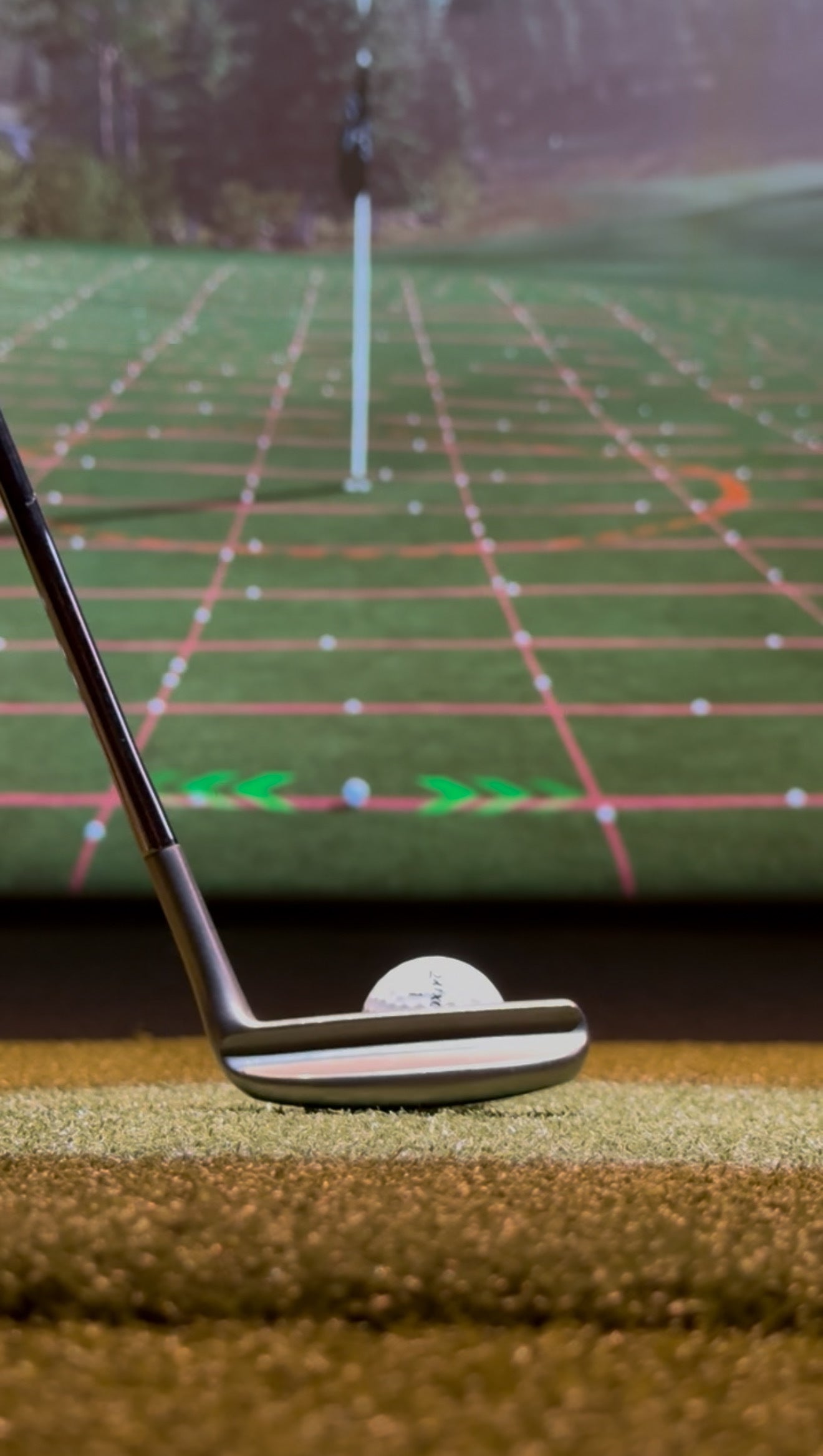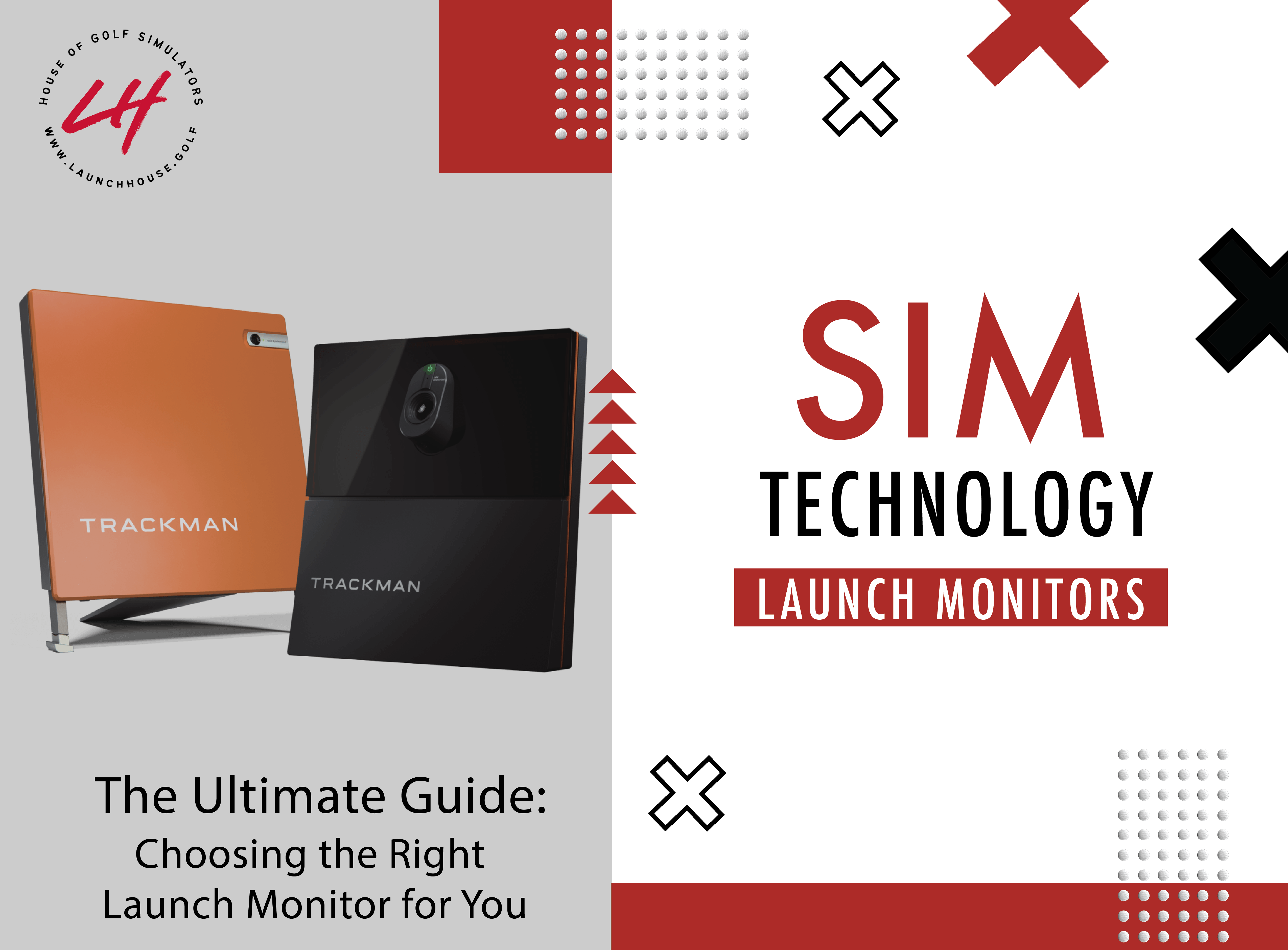Choosing the right launch monitor is one of the most critical decisions when building a golf simulator. The launch monitor determines the accuracy of your shot data, the quality of your practice, and the overall experience of your simulator setup. With so many options available, how do you know which one is best for you? In this guide, we’ll break down the different types of launch monitors, their key differences, and how to choose the perfect one for your needs.
What is a Launch Monitor and Why Does It Matter?
A launch monitor is a device that tracks key ball and club data such as speed, launch angle, spin rate, and shot dispersion. It’s essential for both casual play and serious game improvement, as it provides real-time feedback on every shot.
Key Features to Consider in a Launch Monitor:
-
Tracking Technology: Camera-based (photometric) vs. Radar-based (Doppler)
-
Accuracy: How precise is the data on ball flight and club impact?
-
Compatibility: Works with top golf simulator software like GSPro, E6 Connect, TGC 2019 and more
-
Portability: Fixed (overhead) vs. mobile (floor) launch monitors
-
Price Range: Budget-friendly options vs. premium models

Types of Launch Monitors on the Market
1. Photometric (Camera-Based) Launch Monitors
Photometric launch monitors use high-speed cameras to capture detailed images of the ball at impact. These systems analyze club and ball movement with high accuracy and are well-suited for indoor setups.
Key Benefits:
-
Excellent accuracy for club and ball data
-
Low latency from impact to shot appearance
-
Can provide slow-motion replay of club impact
Best for: Dedicated indoor golf simulators and players who want precise club data analysis.
Example Monitors:
-
Foresight Sports GCQuad
-
Uneekor Eye XO

2. Radar (Doppler) Launch Monitors
Radar-based launch monitors use Doppler technology to track the ball’s movement through the air. These are typically positioned behind the golfer and require more space to provide accurate readings.
Key Benefits:
-
Great for tracking full ball flight outdoors
-
Measures ball and club data over a longer distance
-
Works in both indoor and outdoor environments
Best for: Golfers who want the flexibility to use their simulator both indoors and outdoors.
Example Monitors:
-
Trackman 4
-
Full Swing KIT
3. Overhead (Ceiling-Mounted) Launch Monitors
Ceiling-mounted launch monitors are permanently installed above the hitting area, providing seamless shot tracking without needing space behind the player.
Key Benefits:
-
No need for floor space behind the golfer
-
Ideal for dedicated simulator rooms
-
Provides consistent tracking without repositioning
Best for: Golfers with a permanent simulator setup who want a clean, unobtrusive, and accurate system.
Example Monitors:
-
Trackman IO
-
Uneekor Eye XO2

Which Launch Monitor is Right for You?
| Feature | Photometric | Radar-Based | Overhead |
|---|---|---|---|
| Best For | Indoor use | Indoor & Outdoor use | Permanent simulator rooms |
| Tracking Type | Camera-based | Doppler radar | Ceiling-mounted cameras |
| Software Support | GSPro, E6 Connect, TGC 2019 | GSPro, E6 Connect, TGC 2019 | GSPro, E6 Connect |
| Portability | Moderate | Highly portable | Fixed installation |
| Space Requirement | Small | Large (outdoor optimized) | Moderate |
Final Thoughts: How to Choose the Best Launch Monitor for Your Needs
-
Choose a Photometric Launch Monitor if you have a dedicated indoor setup and want the highest accuracy.
-
Choose a Radar-Based Launch Monitor if you plan to use your simulator both indoors and outdoors and need full ball-flight tracking.
-
Choose an Overhead Launch Monitor if you want a permanently installed, ceiling-mounted system for a clean and unobtrusive setup.
At Launch House Golf, we help golfers find the perfect simulator setup, including choosing the right launch monitor.
-
Need expert advice? Contact us today.
-
Explore our launch monitor options on our website.



Share:
Fixed vs. Mobile Golf Simulator Setups: Which One is Right for You?
The Process for Designing a Custom Golf Simulator Setup